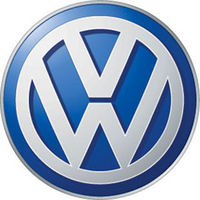Volkswagen Groups Holds its Own on International Automobile Markets
 |
WOLFSBURG, GERMANY – June 12, 2009: 12 June 2009 - Vehicle deliveries of the Volkswagen Group in May increased slightly by 1.5 percent as the Group continued to buck the trend on international automobile markets and hold its own. Total deliveries amounted to 556,700 (May 2008: 548,500) vehicles. This means that 2.49 (January - May 2008: 2.68; -7.0 percent) million vehicles were delivered to customers in the first five months of this year.
The world automobile market took a tumble of roughly 20 percent between January and May. “We have to some extent been able to uncouple ourselves from an overall market that remains very weak thanks to our strong, young product range plus the additional sales advantage that comes from the comparatively high residual value of our used cars. Overall we are benefiting from our strong position in Germany, Brazil and China,” Detlef Wittig, Executive Vice President, Group Sales and Marketing, commented in Wolfsburg on Friday. “However, with the exception of China, global passenger car markets are not showing any signs of recovery. It is not clear whether the markets have hit rock bottom yet,” Wittig added.
Volkswagen brand deliveries in May up 10.2 percent
The
Volkswagen brand produced a very pleasing performance in these difficult
conditions: the core brand grew deliveries in May by 10.2 percent to
351,000 (318,500) passenger cars. There was strong demand for models such
as the mass-market Tiguan and Golf as well as the very successful Chinese
models Lavida, Passat Lingyu, Jetta and New Bora. In Germany, growth ran at
53.9 percent to 71,400 passenger cars. 98,900 (67,300) vehicles were
delivered in China, an increase of 46.9 percent. Vehicle deliveries for the
first five months of 2009 totaled 1.57 million, approximately on a par with
the previous year
Decline in deliveries by Audi, Škoda and SEAT less severe than
overall market
The Audi and Škoda brands stood their ground in
May, reporting only single-digit percentage declines in the number of
vehicles delivered (and therefore performing better than the 20 percent
downturn in the global market). Audi deliveries fell by 6.1 percent to
82,800 (88,200) units. Sales of the A3, A4 Avant, A5 Coupé and Q5 models
were good. In Western Europe, Audi achieved the leading position as the
most successful premium brand thanks to growing market share. In the USA,
Audi improved its position on the premium market by two percentage points
to a share of 8.8 percent. In China, the brand again reported record
figures, with delivery of 12,500 vehicles representing a 27.8 percent
increase compared with the previous year. The Czech brand Škoda
delivered 59,600 (64,300; -7.3 percent) vehicles, with a very strong rise
of 65 percent to 16,700 units in Germany. The brand also reported a strong
rise of 56 percent in China, delivering 7,700 vehicles. SEAT also benefited
from the scrapping premium in Germany with a 113 percent rise in deliveries
to 7,100 units. Overall, SEAT reported a 10.4 percent decline in deliveries
in May to 31,600 (35,300) units.
Regional developments varied – Strong increase in Germany and
China
The turmoil on global automobile markets led to very
different trends in the various sales regions. The Volkswagen Group
reported significant growth in the key markets of Germany and China. On the
Group’s home market, deliveries grew by 36.0 percent to 127,100
(93,400) vehicles. Here, the scrapping premium continued to have a positive
effect. 119,200 (82,100) vehicles were delivered in China, representing an
increase of as much as 45.2 percent compared with May 2008. Volkswagen
Group deliveries in Brazil rose by some 4 percent. In Europe, Volkswagen
delivered a total of 303,400 (324,100; -6.4 percent) vehicles. The poor
market situation in Spain and several countries in Central and Eastern
Europe in particular held the overall region back.
In South America, the Group delivered 65,000 (67,300; -3.5 percent) vehicles in May on an overall market that fell by 13 percent. 42,200 (47,200) vehicles were delivered in North America, corresponding to a 10.7 percent decline on an overall market that was 32 percent down. In contrast, the Asia/Pacific region developed well – chiefly as a result of the successes in China. In a market that grew 5 percent, Volkswagen delivered 130,600 (94,500) passenger cars, a rise of roughly 39 percent.


